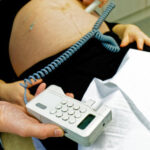Are you wondering how long to wait for a pregnancy test? Understanding your menstrual cycle and ovulation can play a critical role in determining the right time to take a pregnancy test. In this article, we will explore the different signs and symptoms of early pregnancy, as well as the various types of pregnancy tests available. Additionally, we will discuss factors that can affect pregnancy test results and provide tips for taking a pregnancy test.
One key factor in knowing when to take a pregnancy test is understanding the menstrual cycle and ovulation. Ovulation typically occurs around 14 days before the start of your next period, so it’s important to track your cycle and identify when you ovulate. Signs of early pregnancy can also vary from person to person, but being knowledgeable about these signs can help determine when it’s appropriate to take a pregnancy test.
It’s important to note that different types of pregnancy tests may have varying levels of sensitivity, which can impact accuracy. Factors such as timing, urine concentration, and medications can also affect test results. To ensure the most accurate results, it’s crucial to know how long to wait before taking a pregnancy test and how to interpret the results.
Signs and Symptoms of Early Pregnancy
When it comes to early pregnancy, many women may experience a range of signs and symptoms. It’s important to remember that not all women will have the same symptoms, and some may not experience any at all. However, here are some common signs and symptoms of early pregnancy:
1. Missed Period: One of the most obvious signs of pregnancy is a missed period. However, it’s important to note that there can be other reasons for a missed period, such as stress or changes in weight.
2. Nausea and Vomiting: Often referred to as morning sickness, nausea and vomiting can be one of the earliest signs of pregnancy.
3. Breast Changes: Some women may notice changes in their breasts, such as tenderness or swelling. The nipples may also become darker in color.
4. Fatigue: Feeling more tired than usual is another common symptom of early pregnancy.
5. Frequent Urination: Pregnant women may find themselves making more trips to the bathroom than usual due to hormonal changes.
It’s important to keep in mind that these symptoms can also be attributed to other factors, so it’s necessary to take a pregnancy test for confirmation if any of them are experienced.
Remember that while these symptoms are possible indicators of pregnancy, the best way to confirm whether you’re pregnant or not is by taking a reliable pregnancy test. But how long do you need to wait before taking a pregnancy test? Let’s explore this next.
Different Types of Pregnancy Tests
When it comes to finding out if you are pregnant, there are a few different types of pregnancy tests that you can choose from. Each type of test has its own benefits and drawbacks, so it’s important to understand the differences between them before making a decision. Here are the most common types of pregnancy tests:
- Urine Tests: These are the most common type of pregnancy test and can be done at home or in a doctor’s office. They detect the presence of hCG (human chorionic gonadotropin) in the urine, which is a hormone produced during pregnancy.
- Blood Tests: A blood test for pregnancy is typically done in a doctor’s office and can detect pregnancy earlier than a urine test. There are two types of blood tests: quantitative hCG test (measures the exact amount of hCG in the blood) and qualitative hCG test (simply detects if hCG is present).
- Ultrasound: An ultrasound uses sound waves to create an image of the fetus inside the womb. This type of test is usually not used as a first-line method for confirming pregnancy but can be used to verify a pregnancy or to check for problems within the uterus.
It’s important to consider your own preferences and needs when choosing a pregnancy test. Factors such as cost, convenience, accuracy, and how early you want to know about the pregnancy will all play a role in determining which type of test is right for you.
Keep in mind that no matter which type of pregnancy test you choose, it’s essential to carefully follow the instructions provided with the test kit or given by your healthcare provider. This will ensure accurate results and help alleviate any potential confusion about how long to wait before taking a pregnancy test.
Lastly, while home pregnancy tests are generally accurate, if you have doubts or concerns about the results you receive from an at-home test, it’s best to seek confirmation from a healthcare professional through either a blood test or ultrasound.
When Can You Take a Pregnancy Test?
Understanding the Menstrual Cycle and Ovulation
Before determining when to take a pregnancy test, it’s important to understand the menstrual cycle and ovulation. Typically, a woman’s menstrual cycle is around 28 days, but this can vary from person to person. Ovulation usually occurs around the middle of the cycle, approximately 14 days before the start of the next period. It’s during this time that an egg is released from the ovary and is available for fertilization.
Signs and Symptoms of Early Pregnancy
Some women may experience early signs and symptoms of pregnancy such as nausea, fatigue, breast tenderness, or frequent urination. However, it’s important to note that these symptoms can also be attributed to other factors. The most reliable way to confirm pregnancy is through a pregnancy test.
Different Types of Pregnancy Tests
There are different types of pregnancy tests available, including urine tests and blood tests. Urine tests can be done at home using a store-bought kit or at a medical facility. These tests detect the presence of human chorionic gonadotropin (hCG), a hormone produced during pregnancy. Blood tests, on the other hand, are conducted at a healthcare provider’s office and can measure the exact amount of hCG in the blood.
Determining when to take a pregnancy test depends on various factors such as the type of test being used and individual circumstances. It’s essential to consider these factors in order to get accurate results.
Factors That Can Affect Pregnancy Test Results
When it comes to taking a pregnancy test, it’s important to be aware of the various factors that can affect the accuracy of the results. Understanding these factors can help individuals make informed decisions about when to take a pregnancy test and how to interpret the results.
Timing of Test
The timing of when you take a pregnancy test can greatly impact its accuracy. Most home pregnancy tests are designed to be taken after a missed period, as this is when hCG levels are most detectable. Taking a test too early may result in a false negative, so it’s important to wait until the appropriate time for the best results.
Quality of Test
Not all pregnancy tests are created equal, and the quality of the test can also affect its accuracy. Some tests are more sensitive than others and are able to detect lower levels of hCG in the urine. It’s important to choose a reputable and reliable brand of pregnancy test for the most accurate results.
Medications and Medical Conditions
Certain medications and medical conditions can interfere with pregnancy test results. For example, fertility drugs containing hCG can lead to a false positive result. Additionally, medical conditions such as ovarian cysts or certain cancers can also cause elevated hCG levels and potentially lead to misleading results.
Being mindful of these factors and considering them before taking a pregnancy test is crucial in obtaining accurate results and avoiding unnecessary anxiety or confusion. By understanding how these factors can influence pregnancy test outcomes, individuals can make more informed choices regarding their reproductive health.
How Long to Wait Before Taking a Pregnancy Test
When it comes to taking a pregnancy test, timing is crucial. It is important to understand how long to wait before taking a pregnancy test in order to get the most accurate result. The timing of when you take a pregnancy test can greatly affect the accuracy of the results. Understanding this timing can help you avoid disappointment or confusion.
In general, it is recommended to wait until your period is at least one day late before taking a pregnancy test. This is because it takes time for the hormone hCG (human chorionic gonadotropin) to build up in your body after conception. Testing too early may result in a false negative, as the levels of hCG may not be high enough to be detected by the test.
If you have irregular periods or are unsure about when your next period is due, it may be best to wait at least 19 days after having unprotected sex before taking a pregnancy test. This allows enough time for hCG levels to rise if you are pregnant, increasing the accuracy of the test result.
It’s important to note that every woman’s body is different, and factors such as stress, illness, or certain medications can also affect hormone levels. If you are unsure about when to take a pregnancy test or have concerns about your menstrual cycle, it’s best to consult with a healthcare professional for personalized advice.
Tips for Taking a Pregnancy Test
When it comes to taking a pregnancy test, there are a few important tips to keep in mind to ensure accurate results. First and foremost, it is crucial to carefully read and follow the instructions that come with the pregnancy test. Each test may have slightly different guidelines for when and how to use it, so be sure to follow them closely.
Another important tip for taking a pregnancy test is to use the first urine of the day. This is because the concentration of hCG (human chorionic gonadotropin) – the hormone detected in pregnancy tests – is highest in the morning. Using first morning urine can increase the likelihood of obtaining an accurate result.
Additionally, it’s essential to check the expiration date of the pregnancy test before using it. An expired test may not provide reliable results, so always make sure that the test is within its validity period. Furthermore, do not remove the test stick from its casing until you are ready to take the test, as this could potentially affect its accuracy.
By following these tips for taking a pregnancy test, you can help ensure that you obtain reliable results. It’s also important to remember that if you have any concerns or questions about taking a pregnancy test, seeking advice from a healthcare professional can provide valuable support and guidance.
What to Do After Taking a Pregnancy Test
After you have taken a pregnancy test, it is important to know what to do next, depending on the result. If the test is positive, congratulations. It is time to schedule an appointment with your healthcare provider to confirm the pregnancy and start prenatal care. Prenatal care is crucial for both the health of the mother and the baby, so make sure to see a doctor as soon as possible.
On the other hand, if the test is negative, it can be disappointing, especially if you were hoping for a positive result. However, it’s important to remember that a negative result does not necessarily mean you are not pregnant. It may be too early to detect levels of hCG (the pregnancy hormone) in your urine. This leads us to the question of how long to wait before taking a pregnancy test.
Most home pregnancy tests claim to be 99% accurate on the day of your missed period. However, some tests are more sensitive than others and may be able to detect pregnancy hormones in your urine earlier than others.
If you decide to take a test before your missed period and get a negative result but still suspect that you might be pregnant, it is advisable to wait at least a week before taking another test. This allows for enough time for hCG levels to rise if you are indeed pregnant.
Dealing With a Negative Pregnancy Test Result
One important factor to consider when dealing with a negative pregnancy test result is the timing of the test. It is crucial to wait until the appropriate time to take a pregnancy test in order to get an accurate result. If the test is taken too early, it may not detect the presence of the pregnancy hormone hCG in the urine, leading to a false negative result.
According to healthcare professionals, it is best to wait at least one week after missing a period before taking a home pregnancy test. This allows enough time for hCG levels to rise to a detectable level.
For women with irregular periods or those who are unsure about their cycle dates, it may be helpful to wait at least 21 days after unprotected sex before taking a pregnancy test. Following these guidelines can increase the likelihood of obtaining an accurate result and avoiding unnecessary disappointment.
| Timing | Timeframe |
|---|---|
| One week after missed period | Recommended timeframe for most women |
| At least 21 days after unprotected sex | For women with irregular periods or uncertain cycle dates |
Seeking Medical Advice for Pregnancy Concerns
In conclusion, understanding how long to wait for a pregnancy test is essential in ensuring accurate results. The menstrual cycle and ovulation play a crucial role in determining the right time to take a pregnancy test.
It’s important to be aware of the signs and symptoms of early pregnancy and the different types of pregnancy tests available. Additionally, knowing the factors that can affect pregnancy test results can help in making an informed decision about when to take the test.
While waiting before taking a pregnancy test, it’s important to follow some tips for accurate results, such as using first-morning urine and following the instructions properly. After taking a pregnancy test, it’s crucial to know what steps to take next, depending on the result. Dealing with a negative pregnancy test result can be emotionally challenging, but seeking medical advice for any concerns is always recommended.
In case of any doubts or concerns about fertility or potential pregnancy, seeking medical advice is highly advisable. A healthcare provider can offer guidance on when and how to take a pregnancy test based on individual circumstances and provide support for managing any outcomes or next steps. It’s always better to consult with a professional for personalized advice regarding fertility and pregnancy-related concerns.
Frequently Asked Questions
How Soon Will a Pregnancy Test Read Positive?
A pregnancy test may read positive as early as 10 days after conception, but for the most accurate result, it is best to wait until after you have missed your period.
How Long Am I Supposed to Wait for a Pregnancy Test?
It is recommended to wait until you have missed your period before taking a pregnancy test. This usually happens about two weeks after ovulation or around the time of the expected period.
How Long Does It Take for the hCG to Show Up in Urine?
hCG can typically show up in urine about 10-14 days after conception. It is important to follow the instructions on the pregnancy test because some tests may be more sensitive and able to detect lower levels of hCG earlier.

Welcome to my fertility blog. This is a space where I will be sharing my experiences as I navigate through the world of fertility treatments, as well as provide information and resources about fertility and pregnancy.





